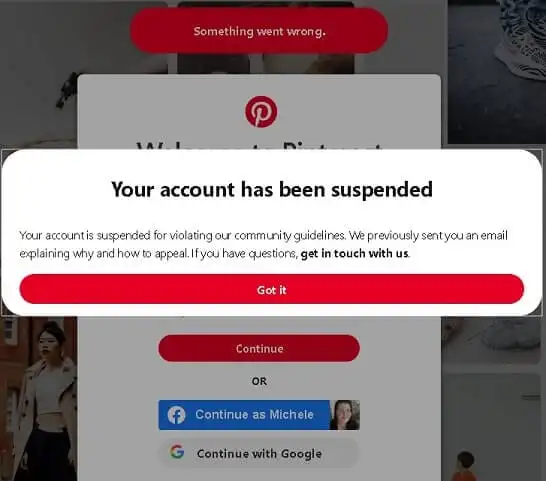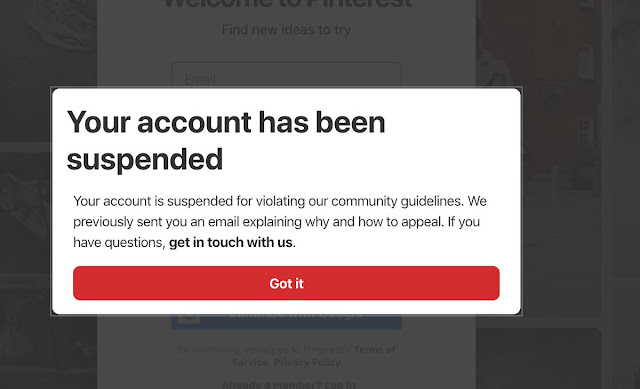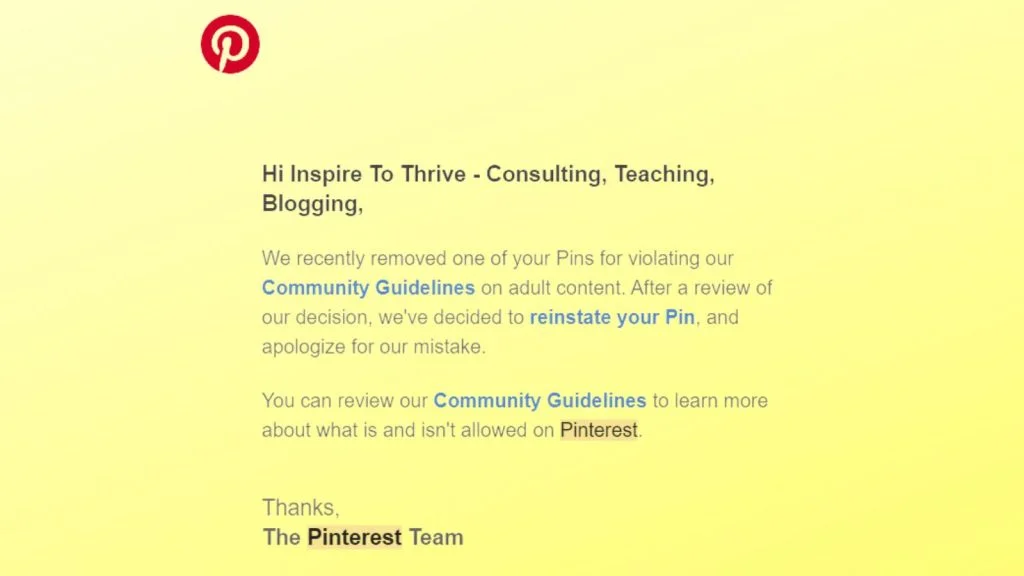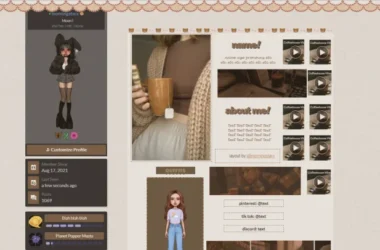How Long Does a Pinterest Suspension Last? Understanding Suspension Timelines
how long does pinterest suspension last, Pinterest suspensions can vary in duration, depending on the severity of the violation and the nature of the account activity. For temporary suspensions, the duration might be as short as 24 hours or could extend to a few weeks. These shorter suspensions typically occur due to minor infractions, such as unintentional guideline violations or temporary security flags, and are often lifted automatically once the account activity returns to normal.
Permanent suspensions, on the other hand, are more serious and often result from repeated guideline violations or behaviors deemed highly problematic by Pinterest. When an account is permanently suspended, Pinterest usually does not allow reactivation. Users facing permanent bans will receive a clear notification stating that their account has been permanently disabled. For those dealing with a temporary suspension, patience is key; however, it’s also wise to review Pinterest’s community guidelines to understand what might have triggered the issue and avoid it in the future.
Common Reasons for Pinterest Account Suspension
Pinterest suspends accounts for a variety of reasons, most commonly tied to violating community guidelines or engaging in unusual activity. One frequent cause is spammy behavior, which includes actions like repeatedly posting the same content, creating multiple accounts for self-promotion, or excessively following and unfollowing users to increase visibility. Pinterest’s algorithms are designed to detect these behaviors, as they go against the platform’s goal of maintaining an authentic and user-friendly experience.
Another reason for account suspension is posting inappropriate or harmful content. Pinterest has strict policies regarding the types of images and text allowed on its platform, and content that promotes violence, harassment, or misinformation can lead to an account being flagged or suspended. Suspensions can also occur if the platform detects that an account has been compromised or involved in suspicious activity, such as logging in from unfamiliar locations. To avoid suspension, it’s best to familiarize yourself with Pinterest’s community guidelines and ensure that all interactions and postings comply with their standards.
Types of Pinterest Suspensions: Temporary vs. Permanent
Pinterest employs two main types of suspensions: temporary and permanent, each carrying different implications. Temporary suspensions are issued for less severe violations, often due to behavior that Pinterest considers suspicious but not necessarily harmful. For instance, an account flagged for spam-like activities—such as rapidly following multiple users or pinning similar content repeatedly—may face a temporary suspension. These suspensions are often lifted within a few days or weeks, once Pinterest verifies that the behavior was not intentionally disruptive.
Permanent suspensions are more serious and typically result from repeated or severe violations of Pinterest’s policies. When Pinterest decides on a permanent suspension, it’s usually because the account has either continuously ignored community guidelines or has engaged in actions considered highly inappropriate, such as promoting violence, hate speech, or other forms of harmful content. In cases of permanent suspension, Pinterest may disable access to the account entirely, preventing the user from rejoining the platform with the same account credentials. Users should strive to understand these suspension types and ensure they adhere to platform rules to avoid encountering either form of restriction.
How to Find Out Why Your Pinterest Account Was Suspended
If you discover that your Pinterest account has been suspended, understanding the reason is crucial to resolving the issue. First, check for an email from Pinterest, as they typically send a notification explaining the suspension. This email often includes details about which guideline or rule was violated and may even provide suggestions on how to rectify the situation or appeal the decision. Be sure to review this email carefully, as it’s your primary resource for understanding what led to the suspension.
Additionally, if you didn’t receive an email, you can log into your Pinterest account (if access is still partially available) and check for any messages or alerts within the app. Pinterest may display a notification about the suspension directly on your account dashboard, indicating the specific reason. Finally, if the reason for suspension remains unclear, you can contact Pinterest’s support team for clarification. Keeping track of any account activity that may have triggered the suspension—such as posting specific types of content or sudden login attempts from various locations—can also be helpful when discussing your case with Pinterest’s support team.
Steps to Appeal a Pinterest Suspension: A Complete Guide
If your Pinterest account has been suspended and you believe the suspension was unwarranted, you have the option to submit an appeal. To start, gather as much information as possible about your account and the potential reasons for suspension. Check the email you received from Pinterest for any details about the suspension type and reason, as this can guide your appeal response. If the email mentions any specific guideline you might have violated, be prepared to explain why you think the suspension may have been a misunderstanding.
To file an appeal, visit Pinterest’s help center and locate the support or contact form. Choose the option that aligns with account suspension issues, and provide a detailed description of your situation. Be honest and professional in your appeal, outlining why you believe the suspension was in error and any corrective actions you’ve taken. For example, if your account was flagged for spam, explain any automated software you may have used or recent changes to your account activity. Once submitted, Pinterest typically reviews appeals within a few days to a few weeks. Patience is important, as each case is reviewed individually, and some cases may take longer to assess than others.
How Long Does the Pinterest Appeal Process Take?
When your Pinterest account is suspended, the appeal process can feel like a waiting game. Typically, Pinterest takes a few days to a couple of weeks to respond to appeals, but this can vary based on factors like appeal volume, the nature of the suspension, and the account’s history. For minor infractions or first-time suspensions, Pinterest may review appeals within 3-5 business days. However, in cases involving serious guideline violations or repeat suspensions, the process could extend to 10-15 business days or even longer.
It’s essential to submit a complete and clear appeal to avoid unnecessary delays. Include details about the issue, any actions you’ve taken to correct it, and your commitment to following Pinterest’s guidelines in the future. This can help Pinterest understand your situation better and prioritize the appeal process. Remember to regularly check the email linked to your Pinterest account, as any updates will usually be sent there. If the appeal period extends beyond the expected timeframe, avoid submitting multiple appeals, as this can sometimes reset the process or complicate the review. Instead, wait patiently for their response, as Pinterest strives to resolve appeals fairly and effectively.
What to Do if Your Pinterest Suspension Appeal is Denied
If Pinterest denies your suspension appeal, it can be frustrating, but there are still steps you can take. First, carefully review Pinterest’s guidelines and policies to understand where your account may have gone wrong. Pinterest generally provides a reason for denial, which could include repeated spam activity, guideline violations, or suspicious behavior. Knowing the specific issue can help you make a stronger appeal in the future or adjust your practices to avoid further suspensions.
Next, consider reaching out to Pinterest support directly through their Help Center. If your appeal was denied, submit a new message that highlights any misunderstandings or clarifies changes you’ve made to avoid the same problem. Be sure to keep your tone polite and solution-focused. In some cases, demonstrating a genuine understanding of the rules and explaining steps you’ll take to prevent future issues can prompt Pinterest to reassess your situation.
If direct contact and reappeals don’t work, consider creating a new account, but keep in mind that you’ll need to use fresh content and follow Pinterest’s guidelines closely. Avoid the same actions that led to your initial suspension, as creating multiple accounts to bypass suspensions could lead to a permanent ban. By understanding Pinterest’s expectations and adjusting your approach, you can help ensure a safe and positive experience on the platform.
Pinterest Account Suspended for Spam: Reasons and Solutions
Pinterest has strict policies to prevent spam, and accounts are often suspended for actions that may resemble spammy behavior. This includes frequently pinning the same content, using automated tools to follow or unfollow users, or sending too many messages in a short time. If Pinterest detects any of these behaviors, it may suspend your account as a preventive measure to maintain a safe and enjoyable platform.
If your account was suspended for spam, the first step is to assess your recent activity. Think about whether you’ve been posting repetitive content, using third-party tools, or engaging in activities that might look like spam to Pinterest. Once you’ve identified potential causes, you can appeal the suspension through the Help Center, explaining your actions and acknowledging the platform’s rules. Be specific in your appeal, showing Pinterest that you understand the importance of maintaining a healthy community.
To avoid future spam suspensions, follow Pinterest’s guidelines carefully. Post varied content, space out your pins, and avoid automating any actions that Pinterest might interpret as suspicious. These best practices will help protect your account and ensure you’re contributing positively to the Pinterest community.
How to Avoid Getting Your Pinterest Account Suspended in the Future
Preventing a Pinterest suspension starts with understanding the platform’s rules and maintaining practices that align with its community guidelines. The most common cause of suspension is activity that Pinterest interprets as harmful or suspicious, such as posting repetitive content, overusing keywords in descriptions, or linking to misleading or harmful websites. Familiarize yourself with Pinterest’s community guidelines and avoid these behaviors to help keep your account safe.
One key strategy is to diversify your content. Rather than repeatedly pinning the same images or links, aim to share a variety of images and descriptions that engage your audience without overwhelming them. Additionally, avoid using automation tools that can trigger Pinterest’s spam detection algorithms, and instead focus on genuine, manual engagement with followers. Remember, Pinterest prioritizes the user experience, so any behavior that feels pushy or intrusive may be flagged.
Another best practice is to verify your website or blog with Pinterest, as verified accounts are often viewed as more trustworthy. Also, keep your account information updated, including your email, password, and linked social media accounts, to show Pinterest that your account is legitimate. Following these practices will not only protect your account but also foster positive interactions with Pinterest’s community.
What to Expect After Pinterest Suspension: Account Reinstatement Process
Once Pinterest lifts your suspension, there are several steps to take to ensure a smooth reinstatement process. When your account is reactivated, Pinterest will typically send you a confirmation email with details on any restrictions or guidelines you should follow moving forward. It’s important to review this email carefully, as it may include specific advice or rules for your account’s safety.
After reinstatement, check your account settings to ensure that all information is accurate, including any linked social media profiles, email addresses, and website URLs. Pinterest may have reset some aspects of your account during suspension, so it’s good to double-check these details. Take time to go over Pinterest’s community guidelines again to avoid any unintentional violations. Remember that if your account was previously flagged, it may be more closely monitored, so being extra cautious with your actions is beneficial.
Preventing Pinterest Suspensions: Key Community Guidelines to Follow
To keep your Pinterest account safe, it’s essential to understand and follow Pinterest’s community guidelines. Violating these rules can lead to a suspension, and repeated infractions might result in a permanent ban. One of the most common suspension causes is spammy behavior. This includes posting the same pins repeatedly, using irrelevant keywords, or sending unsolicited messages to others. Pinterest has strict guidelines against spamming because it affects user experience and decreases the quality of content on the platform.
Another major reason for suspension is inappropriate or harmful content. Pinterest strictly prohibits explicit, violent, or misleading content. Anything that promotes hate speech, misinformation, or harassment will not be tolerated and could lead to your account being flagged or suspended. Additionally, Pinterest requires users to follow copyright laws, so sharing others’ content without permission or claiming it as your own is a direct violation. To avoid this, ensure that any images or videos you post are either your own or properly attributed to their owners.
Pinterest also monitors user interactions, looking for unnatural engagement patterns, such as excessive follows, comments, or likes in a short time. This type of behavior might be seen as an attempt to game the platform, leading to a suspension. By following these community guidelines, you can ensure your account remains active and avoid disruptions. Always focus on providing valuable, original content and interacting naturally with other users.
Troubleshooting Pinterest Account Suspension Issues
If your Pinterest account is suspended, several issues could make the resolution process challenging. Here are troubleshooting tips to help:
First, check your email inbox, as Pinterest typically sends a notification with suspension details. This email often includes the reason for suspension and steps for appeal. If you don’t see this email, check your spam or junk folder.
When attempting to log in, you may encounter error messages like “Account Suspended” or “Unable to Login.” If you’re unable to access your account, try clearing your browser cache and cookies or using a different browser. Sometimes, cached data can interfere with logging in, especially after a suspension.
If you submit an appeal but don’t hear back within the expected timeframe, avoid resubmitting multiple requests, as this can slow down response times. Instead, wait patiently for Pinterest’s response or consider contacting their support team directly through the Help Center.
How Pinterest Decides on Suspension Duration: Factors and Policies
Pinterest evaluates several factors to determine the length of an account suspension. The primary consideration is the nature of the violation. Minor infractions, such as unintentional spam-like behavior, may result in shorter suspensions, usually lasting a few days. However, major guideline breaches, like sharing explicit content or promoting hate speech, can lead to longer or even permanent suspensions.
User history also plays a significant role in suspension length. Accounts with a history of repeated violations are more likely to face extended suspensions, as Pinterest may view them as higher-risk users. On the other hand, a user with no prior offenses may receive a lighter penalty for a first-time infraction. Pinterest also considers the context of the violation, including whether it appears intentional or accidental.
Pinterest may additionally evaluate the appeal submitted by the account holder. If the appeal demonstrates an understanding of the guidelines and a commitment to following them, the suspension might be lifted sooner. However, each case is evaluated individually, and Pinterest prioritizes community safety, meaning accounts that jeopardize user experience are more likely to face prolonged or permanent suspension.
Conclusion: Ensuring a Positive and Safe Pinterest Experience
Navigating Pinterest’s community guidelines is essential for maintaining an active and healthy account. By focusing on high-quality, original content and avoiding spammy behaviors, you can significantly reduce the risk of suspension. Remember, Pinterest’s guidelines aim to foster a positive environment, so following them benefits not only your account but also the entire community.
If you ever face suspension, understanding the appeal process and knowing how Pinterest assesses violations can make it easier to resolve issues. Always take time to read any communications from Pinterest carefully, and if in doubt, reach out for support. By staying informed and respecting the platform’s rules, you can ensure a seamless, enjoyable Pinterest experience for years to come.










